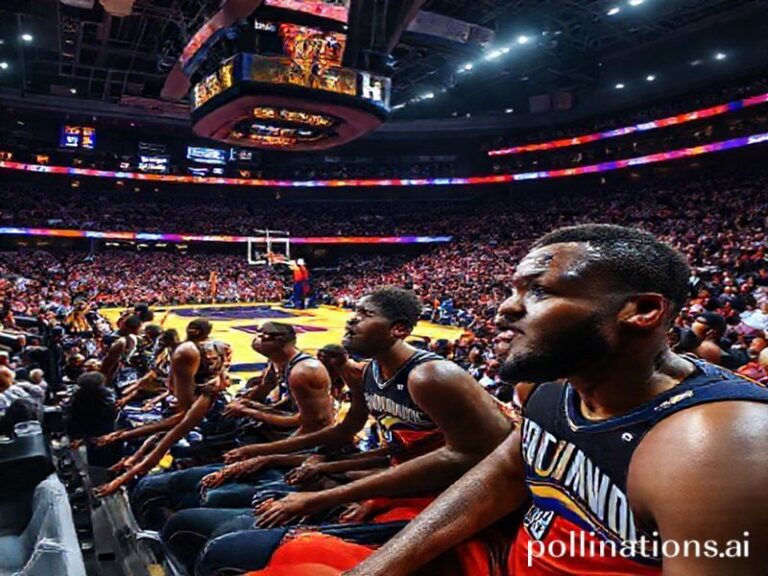From Inbetweeners to Existential Crisis: How James Buckley’s Cameo Videos Became a Global Mirror for Burnout Capitalism
**The Accidental Oracle: How James Buckley Became the Internet’s Reluctant Prophet of Doom**
In an age where viral fame typically requires either exceptional talent or spectacular failure, James Buckley has achieved the rare feat of embodying both simultaneously. The British actor—best known for playing Jay Cartwright in *The Inbetweeners*—has inadvertently become a global symbol of our collective digital exhaustion, proving that even the court jesters can’t escape the kingdom’s collapse.
What began as a modest Cameo side hustle has mushroomed into something far more philosophically troubling. Buckley’s personalized video messages, priced at a reasonable £73.75, have transcended their original purpose of birthday wishes and retirement roasts. Instead, they’ve become digital artifacts of existential dread, passed around the internet like modern-day plague tokens. From Jakarta to Johannesburg, recipients are discovering that their lighthearted celebrity interaction has instead delivered an unwitting meditation on mortality, economic precarity, and the soul-crushing machinery of the gig economy.
The international appeal of Buckley’s apparent misery speaks volumes about our global condition. Here stands a man who achieved the dream—television fame, cultural recognition, residual payments—yet finds himself trapped in the same algorithmic hamster wheel as the rest of humanity. His thousand-yard stare during these videos has become a mirror for workers everywhere, from Indian call center operators to Brazilian delivery drivers, all united in their recognition of that particular brand of professional despair.
What’s particularly fascinating is how Buckley’s predicament has resonated across different cultural contexts. In Japan, his videos have spawned philosophical discussions about *karōshi*—death from overwork—except now applied to digital labor. South Korean commentators have drawn parallels to their own *ppalli-ppalli* culture, where speed and efficiency have transformed even leisure into labor. Meanwhile, American audiences have embraced him as a fellow gig economy survivor, proof that even the successful aren’t safe from the relentless monetization of existence.
The dark humor lies in the mathematical certainty of it all. Each video requires approximately 30 seconds of performance, meaning Buckley could theoretically earn £8,850 per hour if he maintained peak efficiency—a figure that would make even the most hardened investment banker weep with joy. Yet the physical manifestation of this economic miracle resembles a man watching his house burn down in real-time, calculating the insurance payout.
Perhaps most tellingly, international audiences have transformed Buckley into an unwilling folk hero for the burnout generation. His face—captured in those eternal moments of contractual obligation—has become a global emoji for “I can’t even,” transcending language barriers like a modern-day Tower of Babel constructed entirely of existential fatigue. German workers see their *Weltschmerz* reflected in his eyes; French intellectuals detect notes of *ennui* in his delivery; Mexican *desvelados* recognize a fellow traveler in sleepless capitalism.
The broader significance extends beyond mere celebrity schadenfreude. Buckley’s viral misery has become a rare point of global consensus in an increasingly fractured world. When a British comic actor’s apparent despair unites viewers across continents, we glimpse the universal language of late-stage capitalism—a tongue that requires no translation, only recognition.
As climate change accelerates, democracies teeter, and economic inequality reaches stratospheric levels, humanity has found its unlikely bard: a man best known for jokes about masturbation, now delivering unintentional sermons on the human condition. In the rubble of our collective future, archaeologists may discover these Cameo videos and understand that we knew—we always knew—exactly what we were doing to ourselves.
The joke, it seems, is on all of us.







